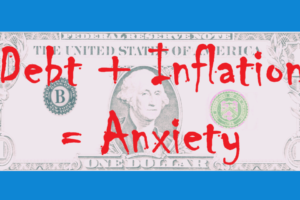Setting Goals
Comments from Kathryn, the author of this blog and a licensed clinical social worker. According to some reports, 60% of the wealthiest people in the country say they focus on their written goals every day. Who knows if setting and working toward life goals leads you to being wealthier. But, at the very least, it gives you a roadmap to follow.
Many people think setting goals is as simple as saying something you want, for example, “My goal is to lose weight (or quit smoking or go back to college).” There is more to it than that.
Quote about goal setting: “For a long time, it had seemed to me that life was about to begin, real life. But there was always some obstacle in the way, something to be gotten through first, some unfinished business, time still to be served, or a debt to be paid. Then life would begin. At last, it dawned on me, that those obstacles were life.
So, stop waiting until you finish school, until you go back to school, until you lose 10 pounds, until you gain 10 pounds, until you have kids, until your kids leave the house, until you have had a drink, until you have sobered up, there is no better time than right now to be happy. Happiness is a journey, not a destination. Thought for the day: work like you don’t need the money. Love like you have never been hurt. And dance like no one is watching.”
Alfred D. Souza (1930-1984)
Goal Categories
There are many factors and categories to consider when deciding on what goals to pursue. Do you want to focus on your brain or your body, or do you want to improve your life situation, for example, moving to a new house, expanding your wealth? Do you want to work on one thing or multiple goals at once?
- Activity (body and brain)
- Avocation (hobbies)
- Education (school or life-long learner)
- Finances
- Fitness
- Heath (mental or behavioral)
- Health (physical)
- Housing
- Nutrition
- Recreation
- Relationships (family)
- Relationships (friends)
- Relationships (intimate or primary)
- Sleep
- Self-awareness
- Self-esteem
- Self-image
- Vacation
- Vices (stop drinking, smoking, gambling, etc.)
- Vocation (work)
SMART Goals
It is great to identify a goal to work on, but it must also be a SMART goal! If you have added a few pounds to your frame over the last few months, it might be a good idea to lose weight. You might even call it a smart goal. But a smart goal is different than a SMART goal. For a goal to be SMART, it must address each of the following criteria:
- S = Specific
- M = Measurable
- A = Attainable
- R = Realistic
- T = Timely
Your smart goal might be: I want to lose weight. Your SMART goal might be: I will lose 2 pounds (specific) per week (measurable, attainable and realistic) until I have lost ten pounds (timely).
Identifying and writing out your SMART goal is the first step. Your SMART goal should always be in writing. You can write it on a piece of paper, your computer, your cell phone or even in a journal, but it must be written and accessible. Don’t hide away your SMART goal! Make sure it is in a place you will see every day!
List the Benefits of Achieving Your SMART Goal
Thinking about, and then writing down the benefits of achieving your SMART goal will help you achieve your goal. Ask yourself, “What is in it for me if I achieve my goal?” Write down as many of them as you can think of.
Examples: I can keep up with my kids when we shoot basketball hoops together, I will not be so short of breath when I take a walk with the dog, and/or I will be able to fit into clothes I haven’t worn in years.
List the Obstacles or Hurdles that May Stand in Your Way
There will always be obstacles that will stand in your way of achieving your SMART goal. Your hurdle could be a toxic person or a stubborn habit. Think about all of the people, places and things that may stand in your way of success. Write them down.
Examples: I have been a yo-yo dieter all of my life, I have lost a thousand pounds in my life, I just can’t keep it off and/or everyone around me will still be eating sweets and large portions.
List Who Can Help You Achieve Your Goals
Sometimes it is difficult to achieve a goal alone. Do you need a tutor? A therapist? A support group? Someone who has already achieved the same goal? Ask around, look around. Write down and/or contact your support system.
Examples: My best friend wants to lose weight, too: maybe we can be diet buddies. My spouse will support me no matter what I do and/or there are no judgement/no shame gyms I could go to.
List the Skills You Will Need to Reach Your Goal
What knowledge/information/skills will you need to achieve your goal? How will you develop more skill? How will you gain more knowledge? Where can you get this information? Read about the subject, attend a class, or join a support group.
Examples: I will need to know what are the most nutritious foods to eat, I will need to know how to use exercise equipment and/or what foods help prevent cravings.
Your Written Plan of Action
To attain your goal, you will need to develop a written Plan of Action to achieve your goal. How are you going to get there? When will you arrive at your goal? How long will it take?
Your written Plan of Action should have both short- and long-term goals. A short-term goal is something you can accomplish in a day or a week. A long-term goal is something that you can accomplish in a week, a month or a year.
Make sure your written goal is in an easily accessible place, and that you look at it at least once, preferably twice, per day. Share your plan with others who are supportive.
Take Away Point
It is not easy to change patterns of behavior. And sometimes it is difficult to make yourself a priority when so many other people and things are vying for your attention. Accomplishing a goal starts with identifying your goal and writing it down.
What or who is holding you back from setting your goals?
With warmest regards,
Thank you so much for reading this blog. If you enjoyed the content, please check out other blogs at:
https://relationshipsrelearned.com/my-blog/
https://rvingnomads.com/blog/
In addition to blogs and articles, I have written a series of self-help books. To view these books, please go to my Amazon Authors Page or go to the Self-Help Books tab at the top of this page.
To be notified of future posts, please enter your email address and click on the Subscribe button.
If you live in the State of Maine or Texas and seeking individual therapy, please go to my Concierge Therapy website: www.kathynmaietta.com
| AI has not been used to create any content for my website, articles, blogs or books. All material is original unless otherwise noted. All photos and graphics within my website and blogs were taken or created by David Harrington or Kathryn Maietta. |












